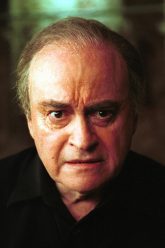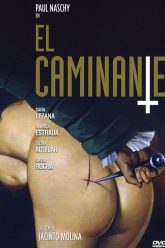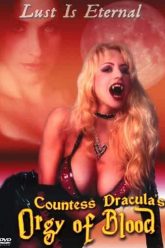Overview (3)
Born September 6, 1934, in Madrid, Spain
Died November 30, 2009 in Madrid, Madrid, Spain (pancreatic cancer)
Birth Name Jacinto Molina Álvarez
Mini Bio (1)
Paul Naschy reigns supreme as the true king of Spanish horror cinema. He was born Jacinto Molina Alvarez on September 6, 1934, in Madrid, Spain. His father ran a successful fur business. Naschy grew up during the Spanish Civil War, and sought escape from the real-life horrors around him in adventure comics and movie serials; he often cited seeing Frankenstein Meets the Wolf Man (1943) in a theater at age 11 as a seminal inspirational experience (his later movies would be filled with references to it). A talented athlete, Naschy played soccer for the school team and was a weightlifter who became the lightweight champion of Spain in 1958. Moreover, Paul penned Western pulp novels under the pseudonym Jack Mills and worked as an illustrator who did the album cover art for a Spanish record label. Thanks to his muscular build, Naschy was able to break into the motion picture business in the early 1960s as an uncredited extra in such films as “King of the Vikings”–El príncipe encadenado (1960)–and the biblical epic King of Kings (1961).
In 1967 he wrote the script for Frankenstein’s Bloody Terror (1968). He was forced, out of necessity, to play the lead role of tormented werewolf Waldermar Daninsky after Lon Chaney Jr. turned it down. He reprised this character in over a dozen subsequent sequels. Naschy’s portrayals of the anguished and sympathetic werewolf Daninsky became his signature part and consolidated his enduring cult status as a bonafide horror icon. Other significant horror figures Paul played were the Mummy, Jack the Ripper, Dracula (his performance as the Prince of Darkness in Count Dracula’s Great Love (1973) was one of his personal favorites), the Hunchback, the Frankenstein Monster, the Phantom of the Opera, and even the Devil. Naschy made his directorial debut with Inquisición (1977). The film “Howl of the Devil”–Howl of the Devil (1988)–was one of Paul’s most personal projects and finest artistic achievements.
Naschy had a major heart attack in 1991, but fully recovered and kept soldiering on. He wrote his autobiography, “Memoirs of a Wolfman,” in 1997. His career gained new momentum in the early 21st century. Paul was especially memorable as the vicious title character in School Killer (2001) and had an excellent autobiographical leading role as bitter, washed-up veteran horror actor Pablo Thevenet in Rojo sangre (2004). Naschy was inducted into the Fangoria Hall of Fame in 2000 and was the recipient of the Gold Medal Award in Fine Arts in Spain in 2001. Moreover, he also did interviews and commentaries for DVD releases of his movies. Paul was still acting when he died of pancreatic cancer at age 75 on November 30, 2009, in Madrid, Spain.
Although he’s sadly no longer with us, Naschy’s extremely rich, varied and impressive horror cinema legacy will continue to scare, shock, and delight audiences throughout the world for all eternity.
Spouse
Elvira Primavera (4 October 1969 – 30 November 2009) ( his death) ( 2 children)
Trivia
Father of Sergio Molina.
In the fifties, he penned several Western dime novels, published under the pseudonym Jack Mills.
Was fluent in German.
In the original versions of his movies, even in the ones directed by himself, his voice was almost always dubbed by professional Spanish dubbing actors, most frequently José Guardiola or Simón Ramírez. A rare instance in which he used his own voice occurred in The Night of the Executioner (1992).
Personal Quotes
[on the character of Waldemar Daninsky] Quite simply, it’s me. The pity is I can’t become a werewolf in true life. All too often I would like to. It’s obvious that in the works of every man there is much of his true self. Like Waldemar, I too have been left aside and misunderstood. I have spent all my life swimming against the current.
The truth is I didn’t create Waldemar Daninsky to make a series of films about him. I guess things just worked out that way.
Marginal characters have always held an appeal for me, the same kind of appeal you find with broken toys. I can readily identify with them; I’ve felt like a broken toy myself.
Movies, even horror-fantasy movies, can carry a real depth of meaning because through fantasy we can convey a deeper message than would appear possible at first sight.
My personality was forged by the war, by my exposure to religion, by a partially frustrated sexuality, by my family and social background, by the people I know, by love and by the ever present shadow of death. All this is reflected in my films as well.
The truth is that Naschy, like the dog in Goya’s painting, always swam against the tide.



